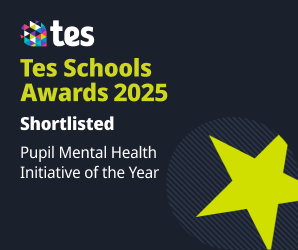Mathematics
What is the intent of the Mathematics Curriculum? 
Through the study of Mathematics we aim to develop students into Mathematical Thinkers who can behave mathematically both in lessons and in the real world to tackle problems and act logically to find solutions. We wish for students to build upon the MYP and IB Learner attributes and become well rounded learners able to identify uses for the Mathematics that they have studied.
In the Mathematics department, we teach across KS3 to KS5. Within KS3 we teach a Mastery based curriculum which also follows the MYP ethos of learning, at KS4 we teach towards the Edexcel Examinations and KS5 IB Mathematics: Applications and Interpretations. The aim is to widen students’ understanding of mathematical concepts and their uses within different contexts.
Co-curricular and Enrichment Opportunities
- UKMT Maths Challenge
- Chess Club
- Weekly Maths Puzzles
- Specialised MAT programme within the department
- External presentations and activities
- Ri Masterclass in collaboration with Kent universities
Years 7, 8 & 9
About the Scheme
Within Years 7-9 we have adopted a Mastery Approach to the learning of Mathematics, this is to allow students to understand that Mathematics is a full network of interconnected mathematical ideas and gives students the opportunity to really understand the mathematics around them and the concepts that they are learning to give them the best chance of success. With the support of software called Complete Mathematics, we are able to adapt our scheme to every student, we can identify gaps in students’ knowledge and revisit these before moving onto the next idea.
Through KS3, we build and work upon the foundations for GCSE Mathematics so the same strands are covered which are:
- Number
- Algebra
- Ratio, proportion and rates of change
- Geometry and Measures
- Probability
- Statistics
Through the mastery approach we aim to give students a secure understanding of the fundamental concepts within each strand ready for GCSE. We start in year 7 by looking at Number and ensuring they have solid numeracy skills before we start making links and connections into other strands.
Along side the Mastery Approach we also embed the MYP ethos into our teaching, we believe that students should have the opportunity to explore different problems and scenarios and have the independence to select appropriate mathematical skills and concepts in order to find a solution, or draw conclusions and inferences. We assess students during these tasks on the following Criteria:
Criterion A: Knowledge and Understanding
Criterion B: Investigating Patterns
Criterion C: Communication
Criterion D: Application to Real World Problems
By the end of Year 9 students should have developed a good understanding of fundamental concepts and have become resilient, well rounded learners ready for their GCSE studies.
Years 10 & 11
Course Title: Mathematics (1MA1)
Exam Board: Edexcel
Qualification: GCSE
About the Course
The aims of this course are to further develop an affluent knowledge and understanding of mathematical models and concepts as well as large skill set which enables them to use this knowledge in unfamiliar situations. We also aim to further their ability to acquire, select and apply mathematical techniques to solve problems and to be able to draw conclusions and reason mathematically. Further to this, we push for students to communicate mathematical information effectively in a variety of forms appropriate to the information and context.
We have two tiers within Mathematics that students can be entered for, Foundation (Grades 1-5) and Higher (Grade 4-9), with the difficulty of material being the only difference. The same six strands are assessed across the two tiers and these are:
How it is Assessed
This course is 100% examined and this is made up of three papers, all equally weighted, each paper is 1 hour 30 minutes and has 80 marks available and the content for each tier will be examined across the three papers. There are a range of question styles across the papers and can be set in both mathematical and non-mathematical contexts, Paper 1 is the only non-calculator paper of the series and a scientific calculator can be used for Papers 2 and 3. Students will receive a grade from 1-9 on the overall result of all three papers, each individual paper is not graded.
For further information, click here.
Years 12 & 13: Mathematics: Applications and Interpretations
Course Title: Mathematics: Applications and Interpretations
Exam Board: International Baccalaureate
Qualification: Part of the IBCP and IBDP
About the Course
This course has been designed around the increasing role that mathematics and technology play in our ever-changing world, because this this course emphasizes the role mathematics plays in context with a focus on topics that have applications or can be used for modelling. There is a strong use of technology within the course and links are constantly made between the theory and practical applications of it.
The main aims of this course are:
- to develop students’ curiosity and enjoyment of mathematics
- to develop their understanding of concepts
- to communicate mathematics effectively and confidently
- to become logical and creative thinkers
- to transfer skills to alternative situations
- to see the universality of mathematics globally and to appreciate the link between developments in technology and mathematics.
This course can be sat at two different levels, Standard and Higher, however there are 5 key strands covered within this course at both levels, the depth to which they are covered is level dependent:
- Number and Algebra
- Functions
- Geometry and Trigonometry
- Statistics and Probability
- Calculus
How it is assessed
There are 6 main assessment objectives within this course and all assessed throughout the examinations:
- Knowledge and Understanding
- Problem Solving
- Communication and Interpretation
- Technology
- Reasoning
- Inquiry Approaches
Exploration is a key focus of the course and its assessments so students need to be able to demonstrate the application of their skills and knowledge. The final assessment is dependent on the level sat:
Standard Level
- Internal Assessment (Exploration Project) – 20%
- Paper 1 (Short Response Questions) 1 hour 30 mins – 40%
- Paper 2 (Extended Response Questions) 1 hour 30 mins– 40%
Higher Level
- Internal Assessment (Exploration Project) – 20%
- Paper 1 (Short Response Questions) 2 hours – 30%
- Paper 2 (Extended Response Questions) 2 hours– 30%
- Paper 3 (2 Extended Response Questions) 1 hour– 20%
For further information, please click here.








